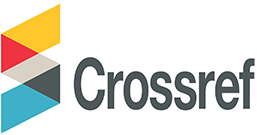Lexical-Semantic Features of Musical Culturonyms
DOI:
https://doi.org/10.69760/aghel.0250040019Keywords:
musical culturonyms, identity, cultural linguistics, globalization, borrowingsAbstract
This study investigates the lexical-semantic features of musical culturonyms—lexical items that denote culturally specific concepts related to music, such as genres, instruments, performers, movements, and musical traditions. Drawing from a corpus of 150 terms, the research employs methods from lexical semantics, cultural linguistics, and corpus analysis to classify and analyze the semantic structures, etymologies, and contextual uses of these terms in English and cross-linguistically.
The findings reveal that musical culturonyms are semantically stratified units with both denotative and connotative layers of meaning. Many of them originate as loanwords or untranslated borrowings that retain strong cultural identities, such as flamenco, sitar, or opera. Others, such as punk, hip-hop, or K-pop, have developed polysemous meanings that extend beyond the musical domain into ideology, fashion, and identity politics. Corpus-based analysis further shows that these terms exhibit distinctive collocational behavior, reflecting their embeddedness in specific cultural discourses.
References
Babayev, J. (2023). Impact of socio-linguistic and socio-cultural factors on translation process. Sciences of Europe, (128), 50-53.
Babayev, J., & Alaviyya, N. (2023). Translation procedures of culture bound-terms (CBTs). Journal of Science. Lyon, 48.
Crystal, D. (2003). The Cambridge encyclopedia of the English language (2nd ed.). Cambridge University Press.
Cruse, D. A. (1986). Lexical semantics. Cambridge University Press.
Davies, M. (2008–). The Corpus of Contemporary American English (COCA). Retrieved from https://www.english-corpora.org/coca/
Gaines, J. (2011). The word and the sound: Semiotics of music and meaning. In L. Kramer (Ed.), The cultural study of music: A critical introduction (pp. 187–199). Routledge.
Hornby, A. S., Ashby, M., & Wehmeier, S. (2015). Oxford advanced learner’s dictionary of current English (9th ed.). Oxford University Press.
Javid, B., & Sadikhova, S. (2025, May). Culturonyms in Food and Drink: How Language Reflects Cultural Identity Through Cuisine. In Publisher. agency: Proceedings of the 10th International Scientific Conference «Modern scientific technology»(May 29-30, 2025). Stockholm, Sweden (p. 346).
Lehrer, A. (1974). Semantic fields and lexical structure. North-Holland.
Oxford English Dictionary Online. (2024). Retrieved from https://www.oed.com/
Robertson, R. (1995). Glocalization: Time-space and homogeneity-heterogeneity. In M. Featherstone, S. Lash, & R. Robertson (Eds.), Global modernities (pp. 25–44). SAGE Publications.
Sadikhova, S., & Babayev, J. (2025). Challenges Encountered in Translation of Culture-bound and Subject-specific Terminology While Using Google Translate. EuroGlobal Journal of Linguistics and Language Education, 2(3), 119-126.
Sadikhova, S., & Babayev, J. (2025). Linguistic Analysis of Art Terms in English. Porta Universorum, 1(3), 214-223.
Sadikhova, S. (2025). Culturonyms in Fashion Discourse: A Linguistic and cultural Perspective. Acta Globalis Humanitatis et Linguarum, 2(4), 319-331.
Silverstein, M. (2003). Indexical order and the dialectics of sociolinguistic life. Language & Communication, 23(3–4), 193–229. https://doi.org/10.1016/S0271-5309(03)00013-2
Stock, J. P. J. (2004). Music and identity in global culture. In M. Clayton, T. Herbert, & R. Middleton (Eds.), The cultural study of music: A critical introduction (pp. 174–183). Routledge.
Vereshchagin, E. M., & Kostomarov, V. G. (1999). Language and culture: Linguistic studies (E. Frolova, Trans.). Moscow: Indrik. (Original work published 1983)
Vorobyov, V. V. (1997). Cultural linguistics: Theory and methods. Moscow: RUDN University Press.
Wierzbicka, A. (1997). Understanding cultures through their key words: English, Russian, Polish, German, and Japanese. Oxford University Press.
Yule, G. (2020). The study of language (7th ed.). Cambridge University Press.
Downloads
Published
Issue
Section
License
Copyright (c) 2025 Acta Globalis Humanitatis et Linguarum

This work is licensed under a Creative Commons Attribution-NonCommercial 4.0 International License.







